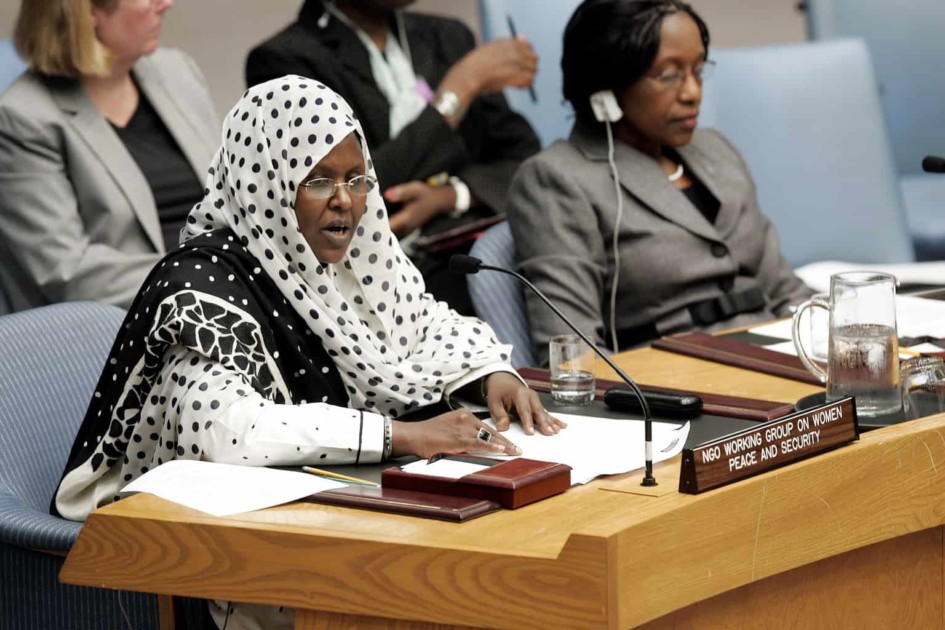Sexual & Gender-Based Violence
Sexual & Gender-Based Violence
Current and Past Recommendations to the UN Security Council (Monthly Action Points)
It is imperative that in its consideration of sexual and gender-based violence (SGBV) in conflict, the Security Council recognizes the structural and root causes of SGBV, including economic, political, social, and gender inequalities and discrimination, militarization, and the political economy of war (i.e. trafficking and exploitation of persons, natural resources, and small arms and light weapons (SALW)) which manifest on a continuum of multiple, interrelated and recurring forms, before, during and after conflict (S/2015/716; S/2017/249; S/2017/1025). The normalization of SGBV during conflict leads to continued entrenchment of violence, often in the form of intimate partner violence (S/2017/249). In the context of the new sustaining peace agenda (S/RES/2282 (2016)), the Council should shift its approach to SGBV by concretely addressing the gender dynamics of the root causes of conflict in the information and analysis requested, and also in action taken. Further, ethnic and other minorities, including sexual and gender minorities, are often particularly targeted, and thus there should be additional efforts to ensure policymaking and programming is intersectional. The Council should:
- Promote gender equality and women and girls’ empowerment as fundamental to all efforts to prevent and address SGBV and support women’s organizations working on the front lines.
- Call for all actors to prioritize transforming gender norms as part of peacebuilding efforts in order to address entrenched institutional and structural inequalities by adopting gender-responsive budgeting practices.
- Ensure accountability for SGBV, including acts amounting to war crimes, crimes against humanity and genocide, and call for vetting mechanisms to ensure members of security forces who have committed crimes under international law are excluded from service until independent and impartial investigations occur. Further, international humanitarian law (IHL) and human rights law should be adapted and integrated within national laws, particularly through legislation focused on intimate partner violence and other forms of SGBV.
- Include targeting of women human rights defenders and SGBV as designation criteria in sanctions regimes; require gender analysis in all reporting on the illicit trafficking of humans, drugs, SALW, and natural resources; and call for gender expertise in all associated experts groups (S/RES/2242 (2015), OP 6; S/2017/249).
- Call for survivors of SGBV to have access to the full range of livelihood, legal, psychosocial and non-discriminatory medical services, including sexual and reproductive health services, in line with IHL and not subject to any donor restrictions to ensure comprehensive medical care, including safe abortion (S/2017/249).
- Call for all humanitarian actors in conflict affected states to comply with the Inter-Agency Standing Committee Guidelines on Gender-Based Violence, and for bilateral donors and pooled funding mechanisms to make funding to all humanitarian sectors contingent upon implementation of these guidelines from the outset of an emergency, which includes recognition of prevention and response to SGBV as lifesaving activities; and call for humanitarian actors operating in conflict affected states to implement the Roadmap (2016-2020) of the Call to Action on Protection from GBV in Emergencies.
- Call for the integration of sex and age disaggregated data in all reports of the Secretary-General on country-specific situations, including in the context of elections, mediation efforts, political processes, and humanitarian assistance, in line with UN policy guidance (PK/G/2018.01).
It is imperative that in its consideration of sexual and gender-based violence (SGBV) in conflict, the Security Council recognizes the structural and root causes of SGBV, including economic, political, social, and gender inequalities and discrimination, militarization, and the political economy of war (i.e. trafficking and exploitation of persons, natural resources, and small arms and light weapons (SALW)) which manifest on a continuum of multiple, interrelated and recurring forms, before, during and after conflict (S/2015/716; S/2017/249; S/2017/1025). The normalization of SGBV during conflict leads to continued entrenchment of violence, often in the form of intimate partner violence (S/2017/249). In the context of the new sustaining peace agenda (S/RES/2282 (2016)), the Council should shift its approach to SGBV by concretely addressing the gender dynamics of the root causes of conflict in the information and analysis requested, and also in action taken. Further, ethnic and other minorities, including sexual and gender minorities, are often particularly targeted, and thus there should be additional efforts to ensure policymaking and programming is intersectional. The Council should:
- Promote gender equality and women and girls’ empowerment as fundamental to all efforts to prevent and address SGBV and support women’s organizations working on the front lines.
- Call for all actors to prioritize transforming gender norms as part of peacebuilding efforts in order to address entrenched institutional and structural inequalities by adopting gender-responsive budgeting practices.
- Ensure accountability for SGBV, including acts amounting to war crimes, crimes against humanity and genocide, and call for vetting mechanisms to ensure members of security forces who have committed crimes under international law are excluded from service until independent and impartial investigations occur. Further, international humanitarian law (IHL) and human rights law should be adapted and integrated within national laws, particularly through legislation focused on intimate partner violence and other forms of SGBV.
- Include targeting of women human rights defenders and SGBV as designation criteria in sanctions regimes; require gender analysis in all reporting on the illicit trafficking of humans, drugs, SALW, and natural resources; and call for gender expertise in all associated experts groups (S/RES/2242 (2015), OP 6; S/2017/249).
- Call for survivors of SGBV to have access to the full range of livelihood, legal, psychosocial and non-discriminatory medical services, including sexual and reproductive health services, in line with IHL and not subject to any donor restrictions to ensure comprehensive medical care, including safe abortion (S/2017/249).
- Call for all humanitarian actors in conflict affected states to comply with the Inter-Agency Standing Committee Guidelines on Gender-Based Violence, and for bilateral donors and pooled funding mechanisms to make funding to all humanitarian sectors contingent upon implementation of these guidelines from the outset of an emergency, which includes recognition of prevention and response to SGBV as lifesaving activities; and call for humanitarian actors operating in conflict affected states to implement the Roadmap (2016-2020) of the Call to Action on Protection from GBV in Emergencies.
- Call for the integration of sex and age disaggregated data in all reports of the Secretary-General on country-specific situations, including in the context of elections, mediation efforts, political processes, and humanitarian assistance, in line with UN policy guidance (PK/G/2018.01).
Relevant Resources










